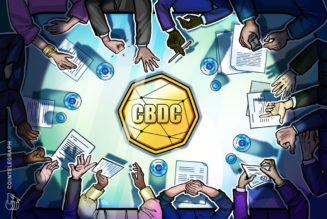Columnists
Start-up failure and its lessons
Friday December 22 2023

Now, previously well-funded ventures pursuing fast-paced “growth at all costs” strategies are either having to pivot hard or close up shop. FILE PHOTO | COURTESY
Life is procyclical. Which is another way of saying, When it rains, it pours. Just the other day, the African venture capital (VC) ecosystem was enjoying the explosion of investment capital from the Global North. But the tables have turned. Now, previously well-funded ventures pursuing fast-paced “growth at all costs” strategies are either having to pivot hard or close up shop. And because procyclicality works just the same in reverse, the pressure has intensified to engage in the type of activities that shareholders don’t like—downsizing, bootstrapping and scaling down, among others.
The situation has also surfaced a lot of questions such as: “Why don’t we celebrate start-up failure as a positive? Where’s the homegrown VC? What are the “slim-diet” options worth adopting? “Is the era of “moving fast and breaking things” over? Or, “Was it a wrong philosophy to begin with?”
Understandably, most entrepreneurs dread failure. No one desires to end up at the start-up graveyard.
On this side of the world, particularly, success—or even the looks of success—is worshipped and failure is seen as a colossal flop. At the very least, no one wants to give talking points to “playa-haters”—many of whom crawled out of their woodwork to give their usual negative criticism —you see misery desperately needs company.
But contrasting this scenario, in “hyper entrepreneurial” countries such as Israel, Taiwan, and Iceland, early business failures are not celebrated, they are seen as critical junctures to provide entrepreneurs with knowledge and experience.
In Israeli start-up culture, for instance, failure is viewed as bringing one to the next stage of growth. I believe we should take a similar view.
Going forward, one key reminder is critical: all markets or economies are cyclical. Therefore, in the prevailing environment, start-ups should do whatever they need to survive—in the extreme case, shut down.
However, in the next upturn, they must engage in some counter-cyclical behaviour—build reserves in anticipation of a rainy day, quickly prune away unprofitable ventures and/or double down on profitable ones, and use profits to pay down debt, among others.
While these moves are counter-intuitive, they should be encouraged and rewarded—I must admit this is a difficult task, especially convincing carry-hungry VCs. Unfortunately, there is no easy way to combat procyclicality.
Countercyclical moves are the only insurance not to get caught on the wrong side during the down-cycle.
What does this mean? It means founders need to normalise modelling for tight credit and tough operating environments or worse, for a bust, they also need to change the expectations of their stakeholders right from the get-go, so that everyone pays attention to long-term forecasts.
For accelerators and incubators, it means supporting the training of entrepreneurs in risk-mitigation strategies and skills. For society, we’ll need to fix the fear and stigma of failure. We should see it as a valuable learning opportunity. We should treat failure as a normal aspect of venturing into new business.
That said, one thing is for certain, the days for building start-ups for valuation sake are gone for a (long) break but expect to return in the future.
Same as days for solving non-existing problems and seeing VCs herd-investing in “Me too” deals. You see, when it rains, it pours. Everyone’s forced to go back to basics.
Mwanyasi is the Managing Director at Canaan Capital.









